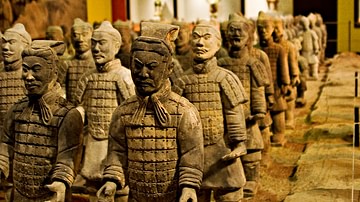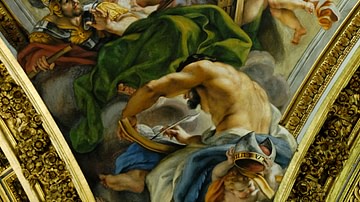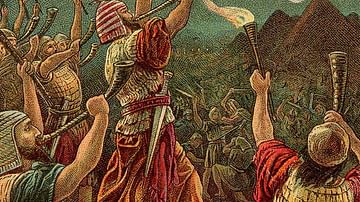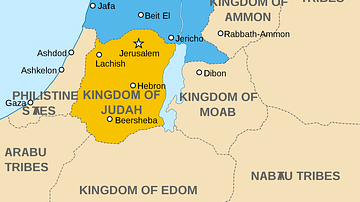Search
Remove Ads
Advertisement
Summary 
Loading AI-generated summary based on World History Encyclopedia articles ...
Search Results

Definition
Gideon
Gideon was a judge and military leader, whose story was recounted in the Biblical Book of Judges. “Judge” (Hebrew, shofet) in this book was not a circuit, court judge, but someone raised up by the God of Israel during a crisis. It is equivalent...

Definition
Terracotta Army
The Terracotta Army refers to the thousands of life-size clay models of soldiers, horses, and chariots which were deposited around the grand mausoleum of Shi Huangdi, first emperor of China and founder of the Qin dynasty, located near Lishan...

Image
The Sacrifice of Gideon
The Sacrifice of Gideon, oil on canvas painting by Hendrik Heerschop, 1653.
Museum of John Paul II Collection, Warsaw.

Article
Fortifications in Ancient Chinese Warfare
While ancient Chinese warfare was often characterised by large armies in pitched battles, siege warfare and the sacking of cities were also regular features. Huge earth walls with towers and encircling ditches or moats became the normal strategy...

Image
Moses, Gideon, Elijah, and Samuel
Moses, Gideon, Elijah, and Samuel by il Baciccio.
Pendentive of the dome of the Gesù, Rome.

Image
Gideon and his Men
Gideon and His Three Hundred, illustration from a Bible card published by the Providence Lithograph Company, 1907.

Image
Gideon
The prophet Gideon with the roll of fleece in his hands as depicted on a Greek Catholic icon in the 18th century.
Greek Catholic Cathedral of Hajdúdorog, Hungary.

Definition
Samuel
Samuel is a character in the Hebrew Bible and the Old Testament, uniquely depicted as having served several roles, as judge, military leader, seer, prophet, kingmaker, priestly official, and loyal servant of Yahweh. He is traditionally thought...

Article
Threshing Floors of the Bible
The threshing floors of the Bible were outdoor stone floors, usually circular in fashion, used by farmers to process the grain of their crops. For the larger community, like watermills of the recent past, they could be gathering places bustling...

Article
Mesopotamian Effects on Israel During the Iron Age
The Iron Age in the traditional Ancient Near Eastern chronology ranges from somewhere around 1200 BCE to 333 BCE. It begins from the era when it was first thought iron came to be used up to the ascendency of Alexander the Great as the major...